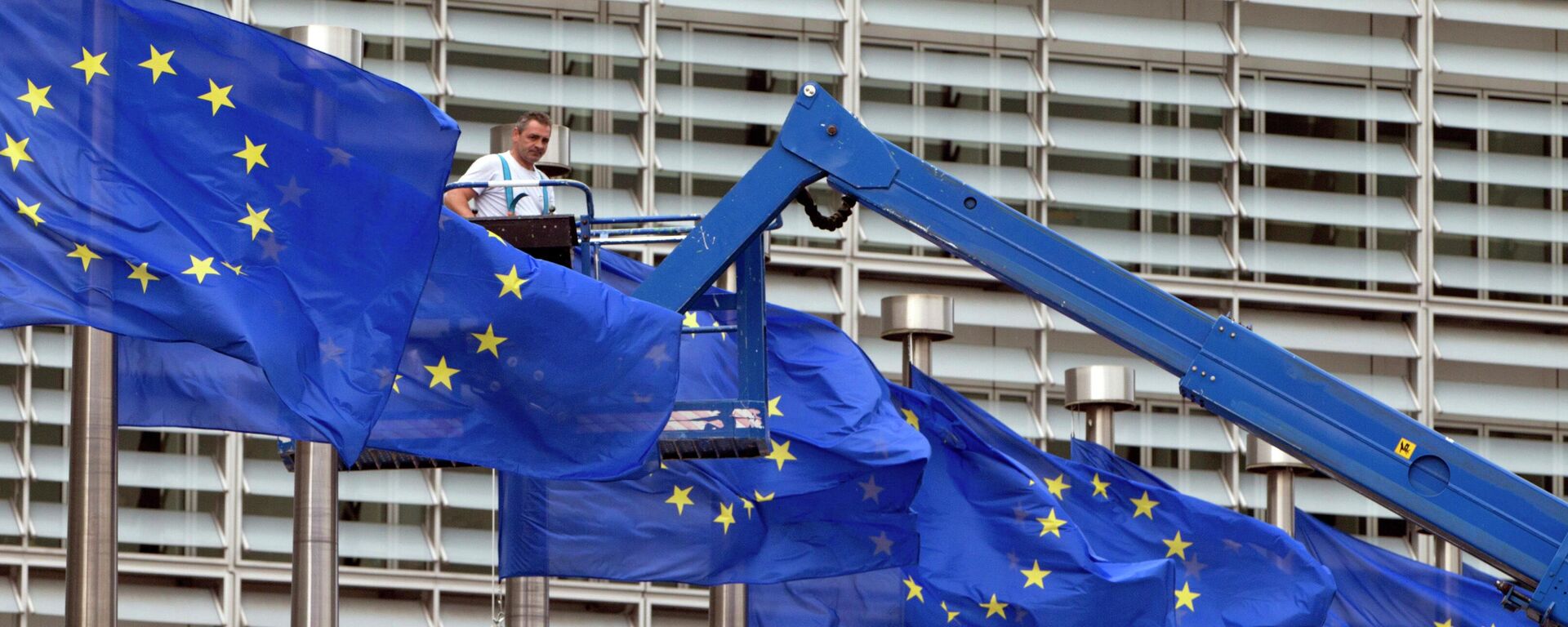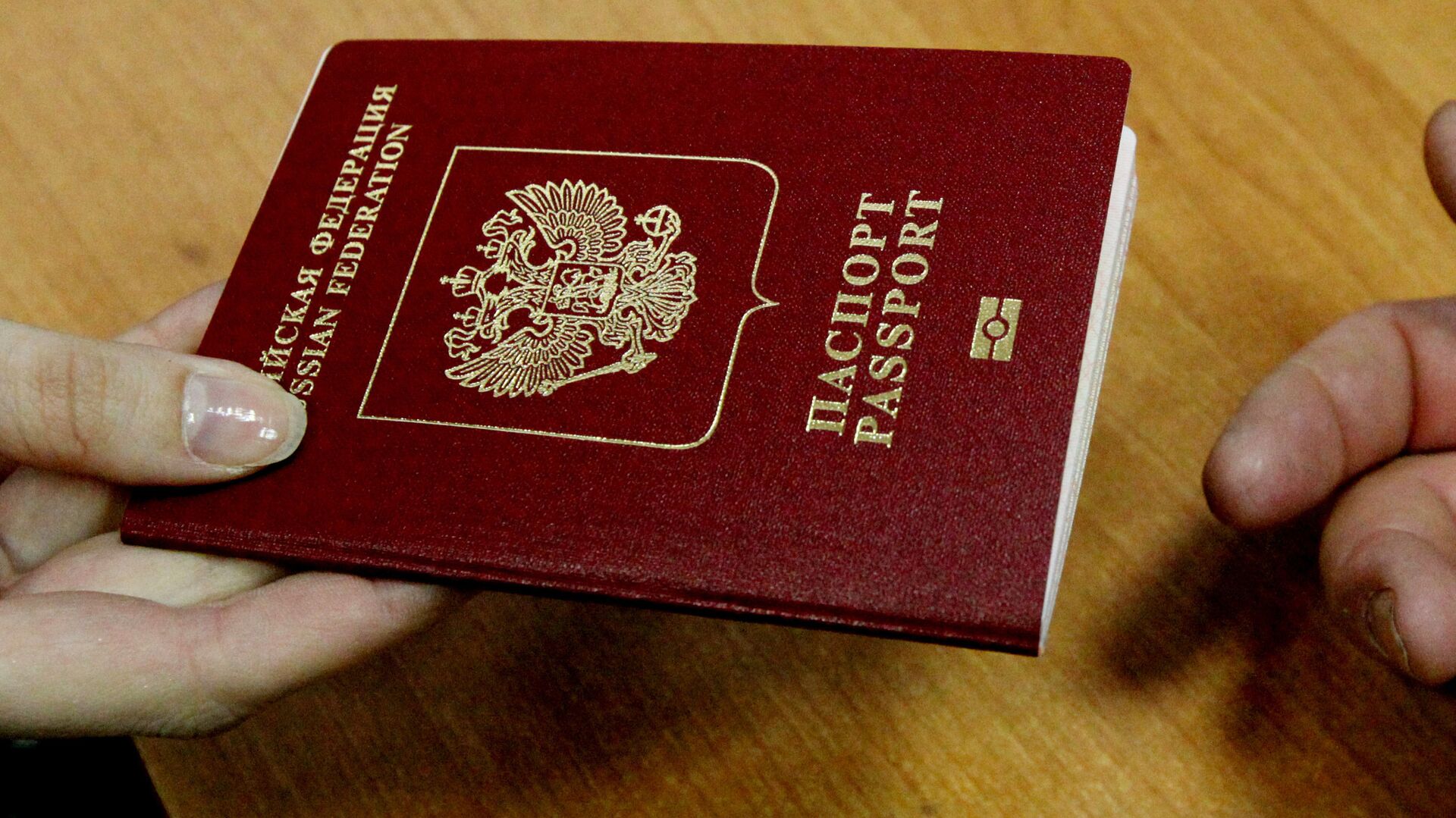https://sputnikglobe.com/20220831/eu-fails-to-agree-on-russian-visa-ban-amid-resistance-from-hungary-others-budapest-1100221154.html
EU Fails to Agree on Russian Visa Ban Amid Resistance From Hungary, Others: Budapest
EU Fails to Agree on Russian Visa Ban Amid Resistance From Hungary, Others: Budapest
Sputnik International
The European Union has divided on whether or not to ban tourist visas for Russian citizens to 'punish' Moscow for the Ukrainian crisis, with Poland, the Baltic... 31.08.2022, Sputnik International
2022-08-31T11:34+0000
2022-08-31T11:34+0000
2023-02-09T11:44+0000
hungary
world
russia
visa
european union (eu)
https://cdn1.img.sputnikglobe.com/img/103436/30/1034363045_0:177:3013:1871_1920x0_80_0_0_d993f613cc5fb2b547c3835f6c5e7852.jpg
The EU's foreign ministers have failed to reach an agreement on a joint, bloc-wide ban on visas for Russians, with Hungary and "many" other nations refusing to support the idea, Hungarian Foreign Minister Peter Szijjarto has announced.Szijjarto also announced that Hungary and Russia had signed a contract on Budapest's purchase of up to 5.8 million cubic meters of gas per day from Gazprom, with the agreement to run from September to October.The EU's foreign ministers met in Prague on Tuesday and Wednesday to discuss the visa issue and other matters related to Russia and the Ukrainian security crisis.Poland, the Baltic states of Estonia, Latvia, and Lithuania, the Czech Republic and Finland have already stopped issuing short-term tourist visas to Russian nationals, and encouraged other EU members and the bloc itself to follow suit. However, Germany, France, Hungary, Greece and Cyprus have resisted the idea.On Tuesday, Bloomberg reported that it had gotten ahold of a Franco-German government discussion paper on the visa issue and other matters related to the Russia-EU crisis. The document rejected calls to ban Russians from visiting the bloc, pointing to what it called the "transformative power of experiencing life in democratic systems at first-hand," and warning that a ban would cause young Russians to rally in support of the government and accept its narrative on the West's hostility to Russia.Hungary has stood out among EU countries in refusing to ruin its relations with Russia in the wake of the Ukrainian crisis, rejecting new sanctions, and flouting Brussels' demands to cut its reliance on Russian energy supplies. Budapest has also refused its NATO allies to send arms to Ukraine through Hungary, and called for negotiations to defuse the crisis.On Monday, commenting on the pressure his country has faced over its position, Szijjarto called on foreign ambassadors working in Hungary to stop lecturing Budapest and to act more like "ambassadors, not viceroys."
https://sputnikglobe.com/20220830/could-sanctions-fatigue--split-on-russian-visa-ban-fuel-fissures-within-eu--1100168999.html
https://sputnikglobe.com/20220830/hungary-to-ask-europe-to-stop-escalation-of-ukrainian-crisis-foreign-minister-says-1100182174.html
hungary
russia
Sputnik International
feedback@sputniknews.com
+74956456601
MIA „Rossiya Segodnya“
2022
News
en_EN
Sputnik International
feedback@sputniknews.com
+74956456601
MIA „Rossiya Segodnya“
Sputnik International
feedback@sputniknews.com
+74956456601
MIA „Rossiya Segodnya“
hungary, russia, visa, european union (eu)
hungary, russia, visa, european union (eu)
EU Fails to Agree on Russian Visa Ban Amid Resistance From Hungary, Others: Budapest
11:34 GMT 31.08.2022 (Updated: 11:44 GMT 09.02.2023) The European Union has divided on whether or not to ban tourist visas for Russian citizens to 'punish' Moscow for the Ukrainian crisis, with Poland, the Baltic states, Czechia and Finland already barring Russians from visiting their countries, while other nations, including Hungary, France and Germany have questioned the need for the measure.
The EU's foreign ministers have failed to reach an agreement on a joint, bloc-wide ban on visas for Russians, with Hungary and "many" other nations refusing to support the idea, Hungarian Foreign Minister Peter Szijjarto has announced.
"As far as the issue of visas is concerned, there was no unanimity among the council [of EU foreign ministers] on the introduction of a general ban on visas for Russians. There will be no general ban on visas. Many member states opposed it, including myself," Szijjarto said in a speech on Wednesday. The bloc does intend to cancel its simplified visa regime with Moscow, however, the foreign minister indicated.
Szijjarto also announced that Hungary and Russia had signed a contract on Budapest's purchase of up to 5.8 million cubic meters of gas per day from Gazprom, with the agreement to run from September to October.
"In August, the maximum amount of additional deliveries reached 2.6 million cubic meters per day. We have now managed to sign an agreement under which, from September 1, through the southern direction, that is, through Serbia, in excess of the established contracts, the maximum amount of gas supplied daily to Hungary will be 5.8 million cubic meters," he said.
The EU's foreign ministers met in Prague on Tuesday and Wednesday to discuss the visa issue and other matters related to Russia and the Ukrainian security crisis.
Poland, the Baltic states of Estonia, Latvia, and Lithuania, the Czech Republic and Finland have already stopped issuing short-term tourist visas to Russian nationals, and encouraged other EU members and the bloc itself to follow suit. However, Germany, France, Hungary, Greece and Cyprus have resisted the idea.

30 August 2022, 11:54 GMT
On Tuesday, Bloomberg
reported that it had gotten ahold of a Franco-German government discussion paper on the visa issue and other matters related to the Russia-EU crisis. The document rejected calls to ban Russians from visiting the bloc, pointing to what it called the "transformative power of experiencing life in democratic systems at first-hand," and warning that a ban would cause young Russians to rally in support of the government and accept its narrative on the West's hostility to Russia.
Hungary has stood out among EU countries in refusing to ruin its relations with Russia in the wake of the Ukrainian crisis, rejecting new sanctions, and flouting Brussels' demands to cut its reliance on Russian energy supplies. Budapest has also refused its NATO allies to send arms to Ukraine through Hungary, and called for negotiations to defuse the crisis.
On Monday, commenting on the pressure his country has faced over its position, Szijjarto called on foreign ambassadors working in Hungary to stop lecturing Budapest and to act more like
"ambassadors, not viceroys."
30 August 2022, 14:24 GMT




